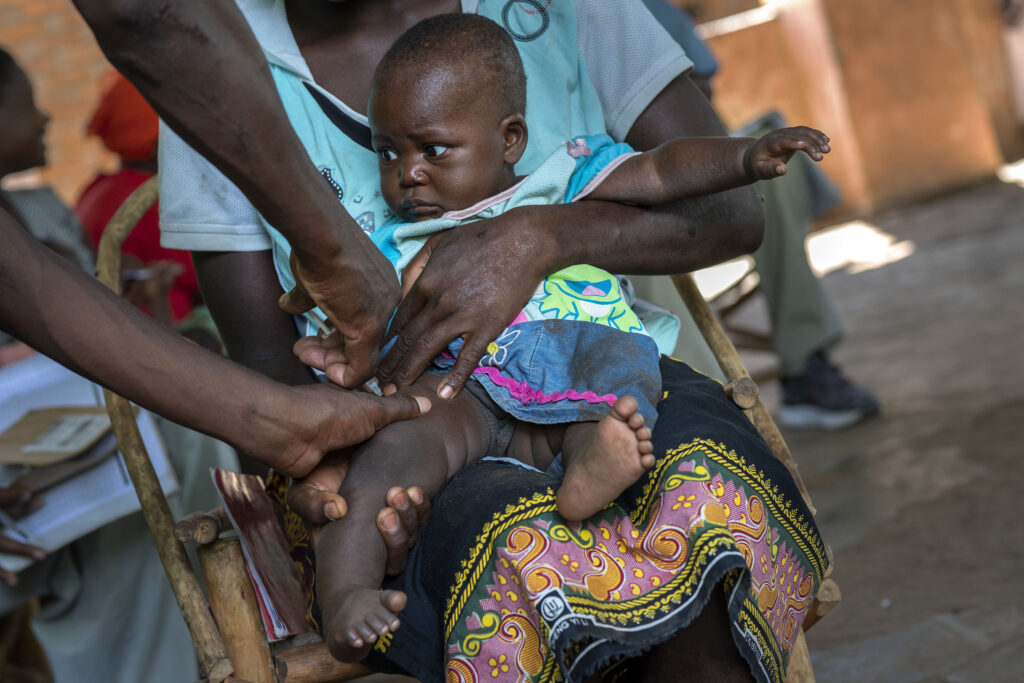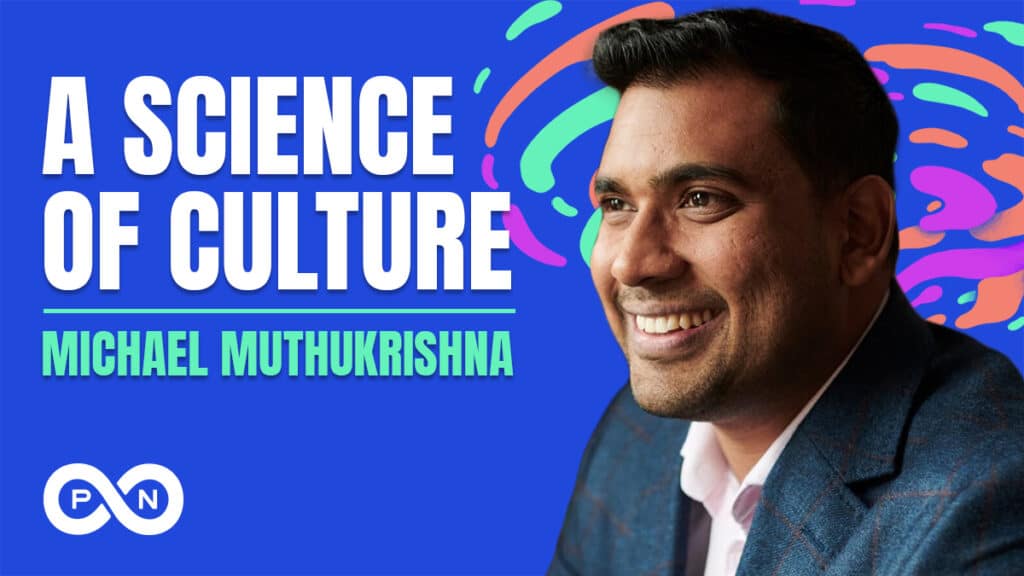Volcanoes are erupting in The Philippines, but on-fire Australia received some welcome rain. The Iran war cries have been called off and The Donald’s military powers are about to be hamstrung by the Senate. Meanwhile, his impeachment trial is starting, and we’re all on Twitter for a front-row seat.
What Could Go Right? Hopescrolling 2023
Something good happened every week of this year.
This is our weekly newsletter, What Could Go Right? Sign up here to receive it in your inbox every Thursday at 5am ET. You can read past issues here.
Hopescrolling 2023
What were the biggest news stories of the year? If you look at mainstream media, except for Taylor Swift’s Eras tour, they were all disasters. Ongoing war in Ukraine. The terrorist attacks in Israel and the subsequent pummeling of Gaza. Deadly earthquakes in Turkey and Syria. The dayslong search, and eventual explosion, of the Titan submersible. Record-breaking temperatures across the globe.
Here at The Progress Network (TPN), however, we specialize in covering the news stories that are not as loud, but oftentimes just as important. As 2023 comes to a close, here are our seven picks of the biggest steps forward from the year, in collaboration with our friends at Warp News. We have also included three of our editorial favorites from TPN and Warp.
If you want to go even deeper, we have a wrap-up that includes a piece of progress from every week of 2023 here.
1. Two new malaria vaccines save lives
Distribution of the world’s first malaria vaccine, RTS,S, is being scaled up, and is already making a difference. In October, the World Health Organization (WHO) reported figures from a 2019 pilot program of the vaccine which showed a 13 percent reduction in deaths among young children.

Also in October, the WHO approved a second malaria vaccine, R21, which is both more effective and cheaper to manufacture than RTS,S. First doses are expected to arrive in malaria-stricken countries in 2024.
In November, a Kenyan pharmaceutical company became the first in Africa to be granted approval to manufacture a high-demand malaria drug, normally imported from India and China.
Belize, Tajikistan, and Azerbaijan were declared malaria-free.
2. CRISPR becomes real
The United Kingdom became the first country in the world to approve a treatment that uses the gene editing tool CRISPR. Casgevy is a therapy for blood diseases sickle cell and beta thalassaemia. While not a cure, it may treat symptoms for a lifetime and could be a replacement for those ineligible for a bone marrow transplant.
Bahrain and the United States both followed quickly in the UK’s stead.
3. Climate change gets worse, but also better
During the hottest year on record, it may seem odd to talk about what went right vis a vis climate change. But plenty did, even as global emissions have not yet declined. In 2023:
- Electric vehicle and heat pump sales soared
- Renewable energy installation surged
- Renewable energy investment broke records
- It is expected that coal consumption peaked
- The Ukraine war turbocharged Europe’s green transition
- Annual climate meeting COP28 yielded a loss and damages fund for poor countries
4. Artificial intelligence (AI) enters the chat
The introduction of AI into, well, everything, is going to be a gamechanger for many aspects of our lives. And while there is plenty to be concerned about, there are also plenty of ways that AI is helping create a better world, from discovering and designing new drugs to helping doctors with patient notes to language learning.
One enormous AI success this year was its find of a new antibiotic, abaucin. It kills Acinetobacter baumannii, a superbug that plagues hospitals and nursing homes and causes blood, lung, and urinary tract infections.
Humans aren’t the only organisms that are evolving with the times; bacteria, too, are passing along genetic material, says the WHO, that increase resistance to antibiotics. But it takes time to screen antibacterial molecules by hand. AI greatly speeds up the process.
P.S. In case you’re among the worried crowd, know that 50 percent of AI researchers don’t actually think that AI has a 10 percent chance of killing us.
5. We’re moving past the Covid pandemic
In May, the WHO decided that the Covid pandemic was no longer a global health emergency. While the declaration doesn’t alter the reality of continued cases across the globe, it does signal an end to the years of unnatural living with social distancing, lockdowns, and travel restrictions.
And, low- and middle-income countries that were rocked the most by Covid’s economic challenges have on average recovered to pre-pandemic levels of poverty, says the World Bank. This is comforting news after the pandemic “led to an unprecedented reversal of consistent decline in global poverty.”
6. Conservation successes
The Saiga antelope, which has been living on planet Earth since the Ice Age, has been moved from Critically Endangered to Near Threatened on the Red List, which tracks species’ extinction risk.
The antelope’s return has been primarily in Kazakhstan, where in 2005, populations dropped to a mere 39,000. They now number nearly two million.
But the Saiga antelope is just one of many conservation successes that occurred this year. Halfway through the year, we had already counted over 50 animal comebacks, including of whales, lions, butterflies, and tigers.
7. The first sample of a deep space object
Why is planet Earth habitable? The answer, say scientists, may lie on asteroids like Bennu, four billion miles away from us. After seven years in deep space, this fall, material scooped off the asteroid was successfully returned to NASA, so it could be studied for the first time.

NASA confirmed the sample “show[s] evidence of high-carbon content and water, which together could indicate the building blocks of life on Earth may be found in the rock.” Scientists think that billions of years ago, asteroids may have delivered the material that eventually resulted in Earth’s air, water, and life forms.
8. Investigation: There is no sixth mass extinction going on
Have half of all the earth’s species really gone extinct? The Progress Network and Warp News teamed up this year to fund an investigation into claims that we’re going through a sixth mass extinction. What reporter Anders Bolling uncovered, however, is that scientific research of a mass extinction uses theoretical models of insects and even smaller organisms—numbers that are impossible to verify.
Among larger species, population numbers vary by region. On the whole, however, humans are far more concerned about, and better equipped to deal with, biodiversity efforts now than in the past.
9. The year in newsletters and podcasts: Poverty on its way out, green energy in
There are ongoing, sweeping changes that are so slow-moving that they are lost beneath the shuffle of a fast-paced news cycle. We covered many of these this year in this newsletter and on our podcast.
We have cut global AIDS-related deaths by over half in the past two decades, for example. Child mortality rates all over the world continue to fall, as well as poverty rates.
On our podcast, we spoke about the finances behind the US’ green transition and why the gender parity discussion may need an update.
10. Warp Levels: An idea to level up humanity
When we envision what we want to achieve and pull together to do it, we can achieve incredible things in a short time. The moon landing in the 1960s. The Covid vaccines in 2020. The UN’s Millennium Goals helped lift a billion people from extreme poverty.
But what should the next phase of humanity’s progress look like? It’s not a phase, but many phases, says Mathias Sundin, founder of Warp News. We could be banding together to achieve currently unimaginable things, from Mars colonization to harnessing star energy to mastery of space-time manipulation.
For even more, check out our 52 pieces of progress, one from every week of 2023.
Thank you so much for spending some part of your year with TPN. We wish you a festive, communal, and rejuvenating holiday season, and a happy new year. Until 2024!
Below in the links section, electric school buses, needle-free vaccines, brainwave-translating AI, and more.
By the Numbers
-37.6%: The change rate in child poverty in Poland, measured across two time periods, 2012–2014 and 2019–2021. The country leads the chart for biggest change made.
9.9%: The child poverty rate in Denmark, the chart leader for lowest rate.
.1%: The difference in rates between Denmark and the country with the second-lowest child poverty rate, Slovenia.
Source: UNICEF

What Could Go Right? S5 E11

How much are cultures crucial for progress, and can we deliberately create ones that lead to particular outcomes? What is it really about humans that separates us from animals? And how does the climate crisis fit into all this? Michael Muthukrishna, author of A Theory of Everyone, explores the distinctiveness of human beings and draws on his interdisciplinary research to argue that cultural evolution has propelled humanity to its current prominence—and will help us face our current challenges, if we know how to apply it properly. | Listen to the episode
Progress, Please
(Found good news? Tweet at us @progressntwrk or email.)
Other good stuff in the news 🧬
Energy & Environment:
- The number of US electric school buses has more than doubled | US Department of Energy
- A US energy milestone is just around the corner | Axios
- Coal’s peak is here, but its demise will be slow | Bloomberg
- More than a third of power consumed in Delhi is green | The Times of India
Public Health:
- Road traffic deaths have fallen by 5% globally since 2010 | World Health Organization
- WHO finally recognizes noma as a neglected tropical disease | Stat News
- No more needles? Gates Foundation funds patch-style vaccine technology | Reuters
- Ghana will enter ‘malaria elimination’ phase in 2024 | Semafor
Science & Tech:
- US nuclear-fusion lab enters new era: achieving ‘ignition’ over and over | Nature
- In a world first, a patient’s antibody cells were just genetically engineered | Wired
- Mind-reading AI can translate brainwaves into written text | New Scientist
- New enzyme allows CRISPR technologies to accurately target almost all human genes | Phys.org
- Morning sickness breakthrough raises hopes of possible cure | The Guardian
Politics & Policy:
- No more drunk driving? US automakers forced to adopt life-saving tech by 2024 | The Guardian
- Colorado will be the first state to expand automatic voter registration to tribes | Good Good Good
- In EPA’s new methane rule, an innovative way to stop ‘super emitters’ | Grist
Society & Culture:
- Pope says Roman Catholic priests can bless same-sex couples | BBC
- 7 out of 10 people feel cared for by others: survey | The Hill
- Why more men are joining the ranks of therapists | The Guardian
Economy:
- Fed leaves rates unchanged and signals three cuts next year | The New York Times
- US economy will pull off soft landing in 2024, CBO projects | Axios
TPN Member originals 🧠
(Who are our Members? Get to know them.)
- What worries me about the Gaza war after my trip to Arab states | Thomas L. Friedman
- Israel, Hamas, and Hezbollah: Fears of escalation grow | Ian Bremmer
- Biden’s Israel impotence | Robert Wright
- The self-doubting superpower | Fareed Zakaria
- Why 2024 isn’t all bad news | Ian Bremmer
- How to save Harvard from itself | Steven Pinker
- The groundbreaking Texas abortion challenge | Isaac Saul
- Trump’s case goes to SCOTUS | Isaac Saul
- AI and extreme economic outcomes | James Pethokoukis
- Michl Binderbauer on the future of fusion | James Pethokoukis
- The kids are all right | James Fallows
- Why you might want to toss out your trophies | Arthur C. Brooks
- Was the Boston Tea Party an act of terrorism? It depends. | Theodore R. Johnson
- Accelerating science through evolvable institutions | Jason Crawford
Department of Ideas 💡
(A staff recommendation guaranteed to give your brain some food for thought.)
When the New York Times lost its way | The Economist
America’s media should do more to equip readers to think for themselves
Why we picked it: Some may remember the Tom Cotton op-ed controversy that cost The New York Times’ editorial page editor James Bennet his job. He rehashes what happened from his perspective in this long (17,000 words long!) criticism of advocacy journalism. Reception, much like the reception to the original events, has been divided. —Emma Varvaloucas
Until Next Time
555, rsrsrs, abmtag: Enjoy this list of how to laugh online in different languages. 🤣



Hopescrolling. What a concept!
Hopescrolling. What a concept!
Hopescrolling. What a concept!